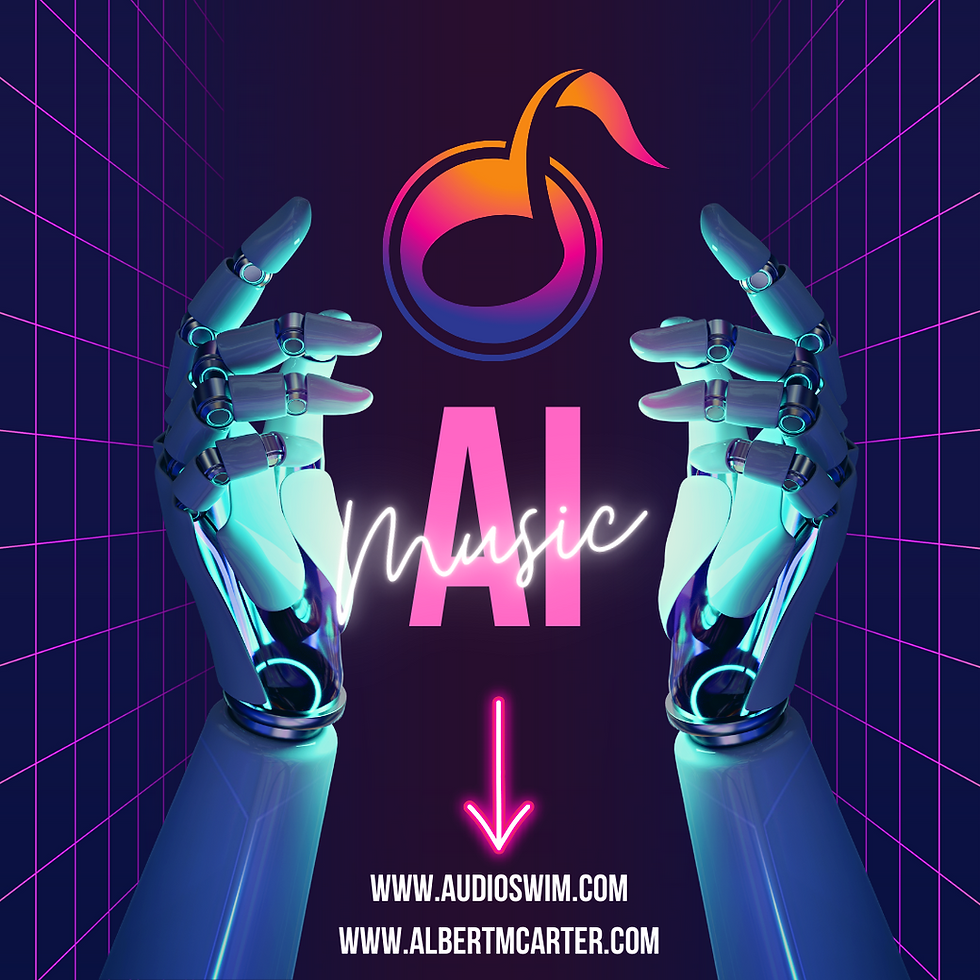AI and the Future of Music
- Albert M. Carter, M.Ed.

- Apr 21, 2023
- 3 min read

With all this talk about the new AI-generated song with Drake and the Weeknd’s voice, it makes me wonder about the role that AI will have in the future of creating music. While AI technology has advanced to the point where it can create convincing imitations of human speech, patterns, and music, there are some ethical concerns around using AI-generated content without the artist's consent or involvement. This is where we can see a real problem going forward with music!
One of the main concerns is that it could lead to a devaluation of the artist's work and creative output. If fans can simply listen to AI-generated tracks instead of purchasing albums or attending concerts, it could significantly impact artist revenue and the ability to continue creating music. Now Drake may be an exception to this rule because of his star power but what about the rest of the artists whose fans might enjoy but want to hear their own songs that are customized for them?
Another concern is around the ownership and control of AI-generated content. If a company or individual develops an AI system that can convincingly replicate an artist’s voice, they could potentially use that technology to create new music or other content without his input or permission. This could raise questions about copyright and ownership of the content. Especially with major labels. Most contracts artists sign include using their likeness.
While AI technology can be used to create compelling music and other content, it's important to consider the ethical implications and ensure that artists are properly compensated and involved in the creation process.
As technology continues to advance, there is no doubt that the music industry is poised for a significant transformation. While some may worry that AI will replace human creativity, reality is more geared that it can enhance and augment the creative process, leading to a more diverse and innovative musical landscape.
One of the most significant ways AI will affect the music industry is through its ability to analyze vast amounts of data. With the help of AI-powered tools, music producers and record labels can gain valuable insights into audience preferences and trends, allowing them to make more informed decisions about the types of music they produce and promote in real-time. This can help ensure that the music being created is more likely to resonate with listeners, increasing the chances of commercial success.
Another way AI is likely to impact the music industry is through the creation of new and innovative musical instruments. Researchers and musicians are already experimenting with AI-powered tools that can generate new sounds and textures, expanding the range of musical possibilities.
Additionally, AI can be used to improve the efficiency of the music production process. For example, AI-powered tools can analyze raw audio recordings and automatically identify and remove unwanted noise or distortion, saving producers and engineers significant amounts of time and effort.
Finally, AI has the potential to democratize the music industry by giving independent artists and smaller labels access to the same tools and resources as their larger counterparts. With the help of AI-powered marketing and promotion tools, independent musicians can reach new audiences and build their fan bases without the need for significant financial investment.
Overall, while some may be skeptical about the impact of AI on the music industry, the reality is that it has the potential to revolutionize the way music is created, produced, and consumed, leading to a more diverse and exciting musical landscape for all.






Comments